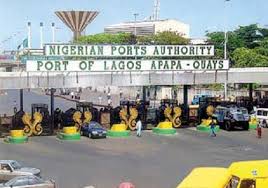The Secretary-General of the Association of Maritime Truck Owners (AMATO), Mohamed Sani-Bala, has declared strong support for the Eto electronic call-up system introduced by the Nigerian Ports Authority (NPA) to control gridlock on the Apapa and Tincan Island Port access roads in Lagos. Sani-Bala made this statement after a peaceful rally held by truck drivers and maritime operators to show their appreciation for the improved traffic situation around the port axis.
Sani-Bala described the Eto platform not just as a mobile app, but as a complete “game-changer” in Nigeria’s maritime transport sector. He said the deployment of the system has drastically reduced traffic jams and brought sanity to the port logistics corridor, which had been notorious for congestion and illegal toll collection for years.
He noted that before the introduction of the system, truck drivers had to queue for days or pay as high as ₦300,000 to gain port access through illegal means. In contrast, with the Eto platform, truckers now pay ₦21,500 to book slots for entry, and the system can be accessed remotely without middlemen.
“Today, truckers can book port access slots remotely and affordably from anywhere in the world, without the need to sleep on the road or deal with road cabals who used to charge huge amounts for access tags,” Sani-Bala said.
He further praised the Lagos State Government for enforcing compliance with the Standard Operating Procedures that support the new system. He noted that collaboration between the NPA, Lagos State officials, and the private sector partner managing the platform, Truck Transit Parks Ltd (TTP), has led to a new era of automation and transparency in Nigeria’s port logistics.
Sani-Bala said that property values in Apapa and Tincan Island areas are now rising due to reduced congestion and improved business activity. “Apapa was almost a ghost town before. Now life is coming back, and businesses can operate smoothly. Port corridors are more fluid, and truckers no longer die from sleeping behind the wheel,” he said.
He also warned against a growing campaign of false criticism being pushed by people who, according to him, benefited from the former manual system that encouraged extortion and disorder. He accused those individuals of attempting to discredit the new digital platform so they can return to old practices.
“We are aware that some individuals are sponsoring a campaign of calumny against the platform. These are people who made money from the old corrupt manual system. Their goal is to take us back, but we won’t let them,” Sani-Bala stated.
He described it as shameful that people who used to charge truckers up to ₦300,000 for manual access are now calling the digital system of ₦21,500 fraudulent. He urged truck owners and drivers to remain united and resist all attempts to derail the progress made.
“The manual system is dead and buried. It’s time to move forward. We say kudos to the NPA, Lagos State Government, and TTP for restoring sanity,” he concluded.
Also speaking during the rally, Afeez Alabi, the Public Relations Officer of the Maritime Truck Drivers Association, echoed similar sentiments. He said attempts to undermine the electronic call-up system would only bring back chaos to the port environment.
According to Alabi, the Eto system has brought order, fairness, and transparency to the movement of trucks in and out of the ports. He noted that while the official cost of booking a slot started at ₦10,250, corruption has found its way back through the emergence of a black market where slots are now resold at ₦120,000 to ₦130,000. He called on the NPA and relevant authorities to address this problem and close loopholes that allow racketeering.
“We know the system is not perfect, but it is much better than what we had. The digital call-up has exposed the corruption and reduced traffic,” Alabi said.
The Eto platform, launched in 2021, was designed to regulate the movement of trucks going into Lagos ports. Its goal was to clear the notorious traffic on the port access roads that disrupted business and affected residents in Apapa and nearby communities for over a decade.
The success of the Eto system is seen as part of ongoing efforts to reform Nigeria’s logistics and transport sectors through technology and better regulatory enforcement. As the port community continues to adapt to the new system, stakeholders are calling for improvements and stricter controls to prevent abuse, while also rejecting any move to return to the discredited manual process.
